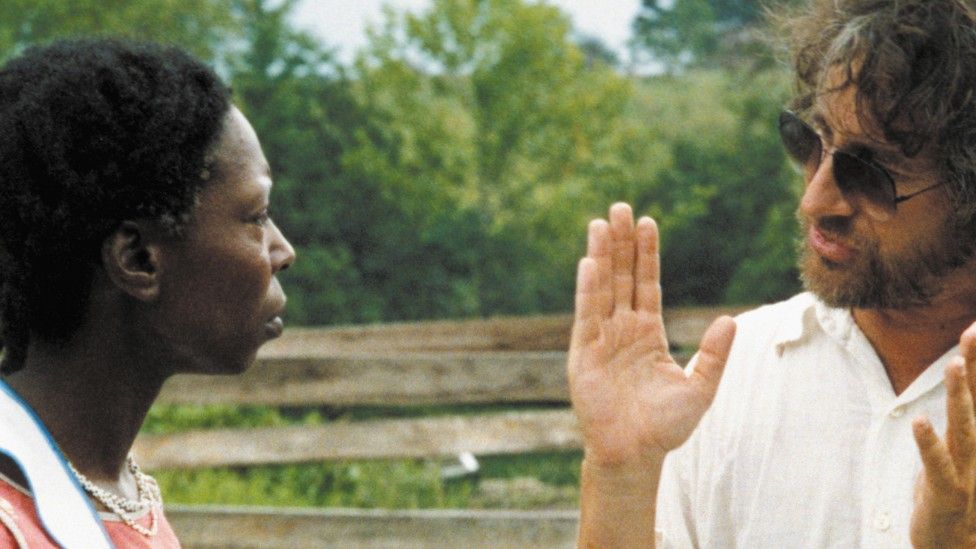An actress sacked over a Facebook post that attacked homosexuality has had her claim for discrimination, breach of contract, and harassment rejected.
Seyi Omooba, 26, sued Leicester’s Curve Theatre and her former agents for £128,000 after being dropped from a stage performance of The Color Purple.
She had been due to play the lead character Celie, sometimes depicted as being in a lesbian relationship.
But she was dismissed when a Facebook post she wrote in 2014 emerged.
The post was shared on social media by another actor unconnected to the play a few days after she was announced as being part of the cast in March 2019.
The entry, written when the Christian actress was 20, said: “I do not believe you can be born gay, and I do not believe homosexuality is right, though the law of this land has made it legal doesn’t mean its right.”
The virtual hearing of the Central London Employment Tribunal sparked a social media backlash and she was sacked by Leicester Theatre Trust Ltd six days later following discussions in which Ms Omooba stood by her views.
Three days later her contract with her agency Michael Garrett Associates Ltd (Global Artists) was also terminated.

The panel was told she had been “unconditionally” offered her full salary for the role by the theatre but refused to invoice the trust, instead, bringing legal action on the grounds she had suffered extensive career damage for espousing her religious beliefs.
At the tribunal she sought £4,309 from the theatre plus a further £25,000 for injury to feelings and reputational damage.
She also sued her former agency £98,752 for loss of earnings, future losses, injury to feelings and reputational damage.
‘Save the production’
However, Ms Omooba’s claims of discrimination, harassment and breach of contract were rejected by the tribunal panel.
The panel dismissed her suggestion that her sacking by the theatre amounted to discrimination against her religious beliefs.
In a written judgement, it concluded it was “the effect of the adverse publicity from [the 2014 post’s] retweet, without modification or explanation, on the cohesion of the cast, the audience’s reception, the reputation of the producers and “the good standing and commercial success” of the production, that were the reasons why she was dismissed.”
On the harassment claim, it said: “In the view of the tribunal Mr Stafford [Chris Stafford, chief executive of Leicester Theatre Trust] did not have the purpose of violating the claimant’s dignity or creating an intimidating or humiliating environment for her. His purpose was to save the production.”
Miss Omooba had claimed the character’s sexuality was ambiguous and she would have refused the role if she had considered her gay.
But this was rejected by the panel, with the panel commenting: “She had taken part in a similar production, she had the script, and knowing that a lesbian relationship was at least one interpretation, she should have considered much earlier whether a red line was to be crossed.”
The panel also rejected Ms Omooba’s demands for compensation for loss of earnings, future losses and reputational damage as a result of her agency contract being terminated.
“There is no financial loss because she would not have played the part,” it said.
“There is no loss of opportunity to enhance her reputation by performing, because she would not have played the part.
“If there is damage to her reputation, it was not caused by being dropped from the production but by an unconnected person’s tweeting… of her Facebook post and the outcry resulting from that.”

Ms Omooba’s case had been supported by the legal arm of Christian Concern, an organisation co-founded by her father, pastor Ade Omooba MBE.
Andrea Williams, the group’s chief executive, said: “We’re disappointed by the judgement and Seyi is considering her options for appeal.”
Curve Theatre’s management team said it was pleased with the outcome following a “hugely challenging and upsetting time”.
In a statement, it said: “Seyi Omooba accepted a lesbian part in our production of The Color Purple knowing full well she would refuse to play this iconic gay role as homosexual.
“We believe the case had no merit from the outset and should never have been brought to the tribunal.
“We now look forward to drawing a line under this painful chapter and focusing our energies on how we rebuild our theatre after the pandemic.”

